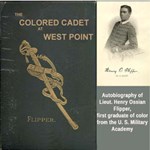- Popular Genres
-

The most popular500
-

Children400
-

Fiction750
-

Fantasy350
-

Horror/Ghost stories700
- Learn English
-

Dictionary 180,000
- Children's Fiction
-

Fiction364
-

Action & Adventure315
-

Animals & Nature275
-

Myths, Legends & Fairy Tales222
-

Family117
-

General102
-

Historical43
-

Poetry48
-

Religion37
-

School33
-

Short works52
- Children's Non-Fiction
-

Non-fiction76
-

Reference5
-

Religion19
-

Science21
-

History14
-

Biography23
- Fiction
-

General694
-

Action & Adventure603
-

Classics (Greek & Antiquity)94
-

Crime & Mystery195
-

Detective322
-

Culture & Heritage127
-

Dramatic Readings151
-

Epistolary Fiction47
-

Erotica12
-

Travel Fiction42
-

Family Life123
-

Biographies & Memoirs73
-

Historical Fiction433
-

Humorous Fiction387
-

Literary227
-

Nature & Animal63
-

Nautical & Marine97
-

Religious Fiction109
-

Romance477
-

Sagas16
-

Satire127
-

Sports Fiction9
-

Suspense & Espionage79
-

War & Military Fiction89
-

Westerns98
- Fantastic Fiction
-

Fantastic Fiction103
-

Myths, Legends & Fairy Tales178
-

Horror & Supernatural Fiction150
-

Gothic Fiction25
-

Science Fiction490
-

Fantasy Fiction83
- Short Stories - Fiction
-

Short Stories260
-

Anthologies37
-

Single Author Collections142
- Fiction by year
-

Published before 180020
-

Published 1800-1900207
-

Published 1900 onward207
- Non-Fiction
-

Non-Fiction427
-

War & Military170
-

Animals62
-

Art, Design & Architecture43
-

Biography & Autobiography360
-

Memoirs187
-

Business & Economics31
-

Crafts & Hobbies15
-

Education & Mathematics28
-

Essays & Short Works177
-

Family & Relationships27
-

Health & Fitness20
-

House & Home20
-

Cooking64
-

Gardening10
-

Humor61
-

Law24
-

Medical32
-

Music33
-

Nature149
-

Performing Arts15
-

Political Science118
-

Psychology62
-

Reference16
-

Self-Help & Advice66
-

Sports & Recreation15
-

Technology & Engineering37
-

Travel & Geography177
-

True Crime49
-

Writing & Language24
- Science - Non Fiction
-

Science67
-

Astronomy, Physics & Mechanics25
-

Chemistry8
-

Earth Sciences22
-

Life Sciences40
- Philosophy - Non Fiction
-

Philosophy92
-

Ancient & Medieval30
-

Early Modern32
-

Modern & Contemporary43
-

Atheism & Agnosticism19
- History - Non Fiction
-

History256
-

Antiquity37
-

Middle Ages/Middle History36
-

Early Modern82
-

Modern (19th C)127
-

Modern (20th C)49
- Religion - Non Fiction
-

Religion63
-

Christianity - Commentary19
-

Christianity - Biographies26
-

Christianity - Other86
-

Other religions29
- Bibles
-

Bibles69
-

King James Version63
- Literary Collections - Non Fiction
-

Literary Collections34
-

Essays / Short non-fiction20
-

Letters27
- Colored Cadet at West Point
-
 Download the book
Download the book
Henry Ossian Flipper--born into slavery in Thomasville, Georgia on March 21, 1856--did not learn to read and write until just before the end of the Civil War. Once the war had ended, Flipper attended several schools showing a great aptitude for knowledge. During his freshman year at Atlanta University he applied for admittance to the United States National Military Academy at West Point. He was appointed to the academy in 1873 along with a fellow African American, John W. Williams. Cadet Williams was later dismissed for academic deficiencies.
Flipper and Williams were not the first African Americans to attend West Point, however. Two others came before them: James Webster Smith in July of 1870, and Henry Alonzo Napier in 1871. Cadets Napier and Smith were eventually dismissed for academic deficiencies.
In 1876, Johnson Chestnut Whittaker another African American, was admitted to the academy. But one day he was discovered beaten, bound and unconscious in his room. An investigation was conducted by a lengthy courts martial; however, this proceeding--tainted by racism--determined that Whittaker’s injuries were "self-inflicted" and that he had tied himself up. Secretary of War, Robert Todd Lincoln, later declared the court martial invalid, but this did nothing to save Cadet Whittaker's career as he was preemptively dismissed from the academy because of academic deficiencies.
Henry Ossian Flipper graduated from West Point as a Second Lieutenant in June of 1877 earning his place in history as the first African American to do so. No other men of color would accomplish the same for another decade. His first permanent duty assignment was to the famed 10th Calvalry Regiment.
Since the academy’s founding on March 16, 1802, it had been known for the “rigorous hazing” which all cadets had to endure. But certainly no cadet ever had to endure the open hostility and brutality experienced by those first African Americans to join the Corp of Cadets. The pain, humiliation and sacrifices that Flipper and others suffered then made the burden just a little easier for subsequent generations.
- Chapters
- Preface & Chapter I
- Chapter II
- Chapter III
- Chapter IV
- Chapter V
- Chapter VI
- Chapter VII
- Chapter VIII
- Chapter IX
- Chapter X (part 1)
- Chapter X (part 2)
- Chapter X (part 3)
- Chapter XI
- Chapter XII
- Chapter XIII
- Chapter XIV
- Chapter XV (part 1)
- Chapter XV (part 2)
- Chapter XV (part 3)
- Chapter XVII (part 1)
- Chapter XVII (part 2)
